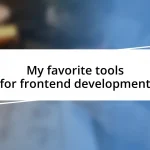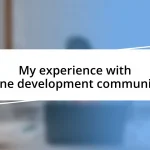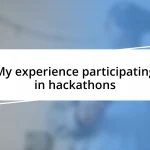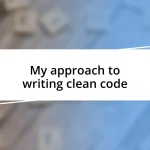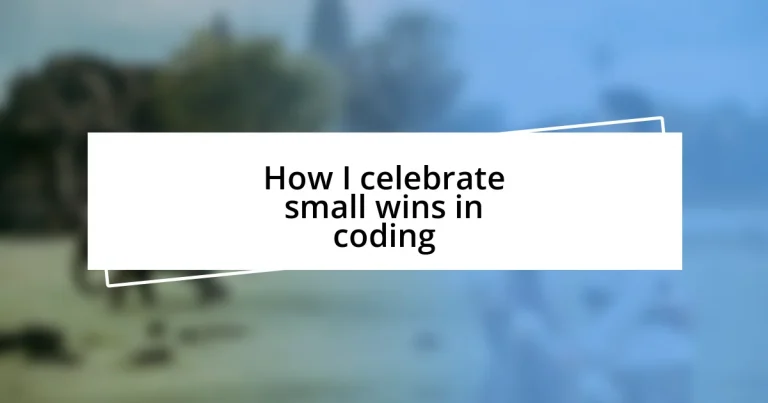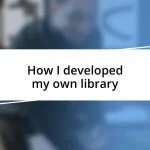Key takeaways:
- Celebrating small wins enhances motivation and fosters a growth mindset, turning challenges into rewarding experiences.
- Identifying and reflecting on achievements, such as debugging or completing projects, builds confidence and keeps learners engaged.
- Incorporating a reward system and sharing successes with peers creates a positive feedback loop, encouraging continued progress and collaboration.
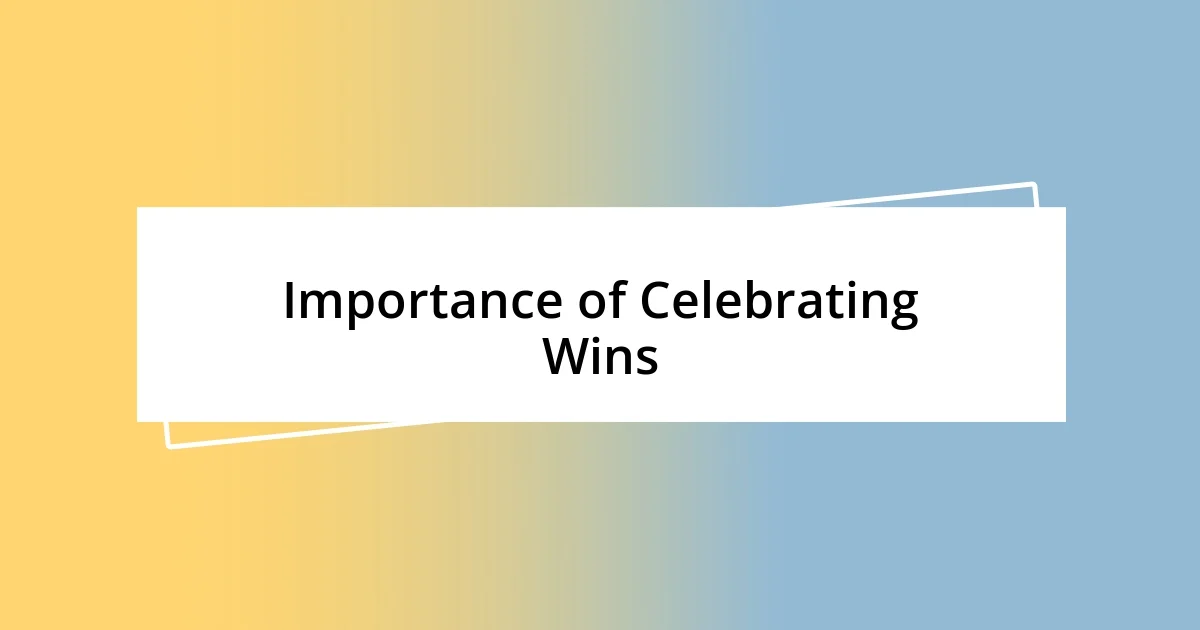
Importance of Celebrating Wins
Celebrating small wins is vital because it boosts our motivation and reinforces positive behaviors. I remember when I finally debugged a particularly tricky piece of code after days of frustration. The sense of relief, combined with the satisfaction of success, made me more eager to tackle the next challenge.
Acknowledging these small victories fosters a growth mindset. I find that when I take a moment to celebrate, even just with a brief self-high-five or a call to a friend, it shifts my focus from the daunting task ahead to the progress I’ve made. Have you ever noticed how celebrating a win can turn an exhausting day into a more satisfying experience?
Furthermore, these celebrations create a positive feedback loop. They remind us that every step forward, no matter how small, counts. I often think about how my early coding projects felt monumental at the time, and by recognizing those achievements, I built confidence that propelled me into tackling more complex tasks. How do you celebrate your wins, and how does that affect your journey?
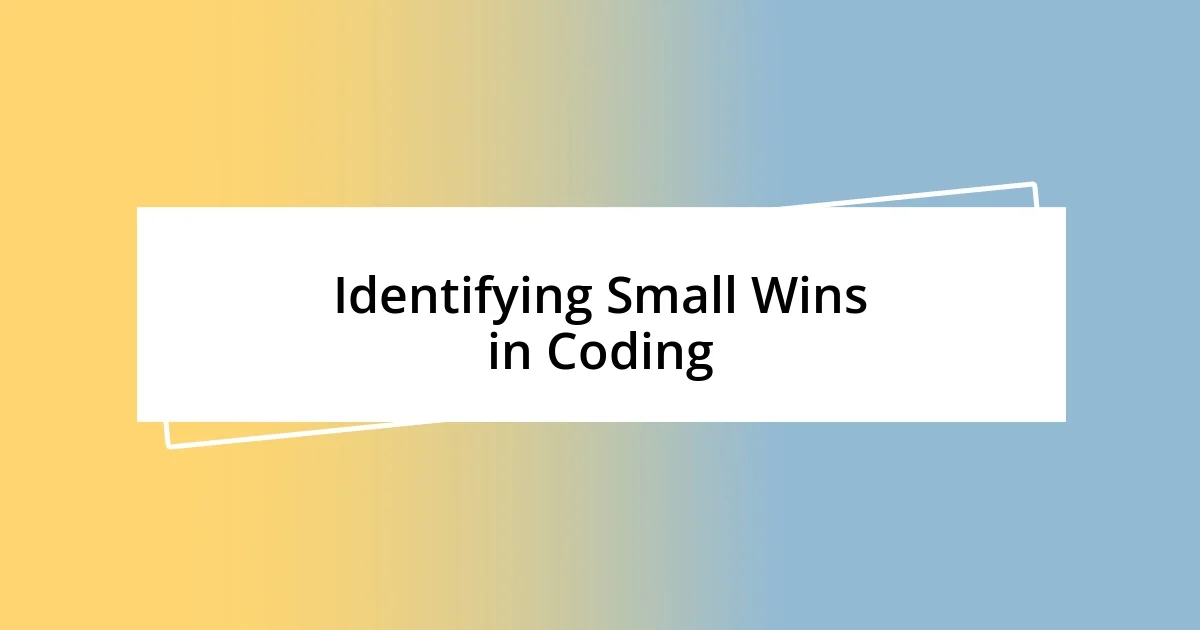
Identifying Small Wins in Coding
Identifying small wins in coding is all about recognition and reflection. Each time I resolve a bug or understand a new concept, I make it a point to acknowledge that moment. For instance, after finally grasping a challenging JavaScript function, I felt a spark of joy—I wasn’t just mastering the code; I was evolving as a coder. This small victory brought me a sense of accomplishment that fueled my desire to learn even more.
I often use a simple checklist to mark my achievements throughout a coding session. When I complete an item, even if it’s as minor as writing a function, I get to enjoy a small mental celebration. One day, I remember ticking off the last task on my list after a long coding battle, and the rush of satisfaction reminded me of crossing the finish line in a marathon. It’s these everyday milestones that keep me engaged and remind me progress is worth celebrating.
To pinpoint what constitutes a small win, I reflect on my learning journey. For me, it’s about setting achievable goals. When I write clean code or help a peer debug an issue, it’s not just routine—it’s progress worth recognizing. These moments are like stepping stones; they build a foundation for bigger accomplishments. Have you considered what small wins look like in your coding life?
| Small Wins | Impact |
|---|---|
| Debugging a tricky function | Boosts confidence and problem-solving skills |
| Learning a new syntax | Enhances coding fluency and adaptability |
| Completing a project milestone | Increases motivation and sense of achievement |
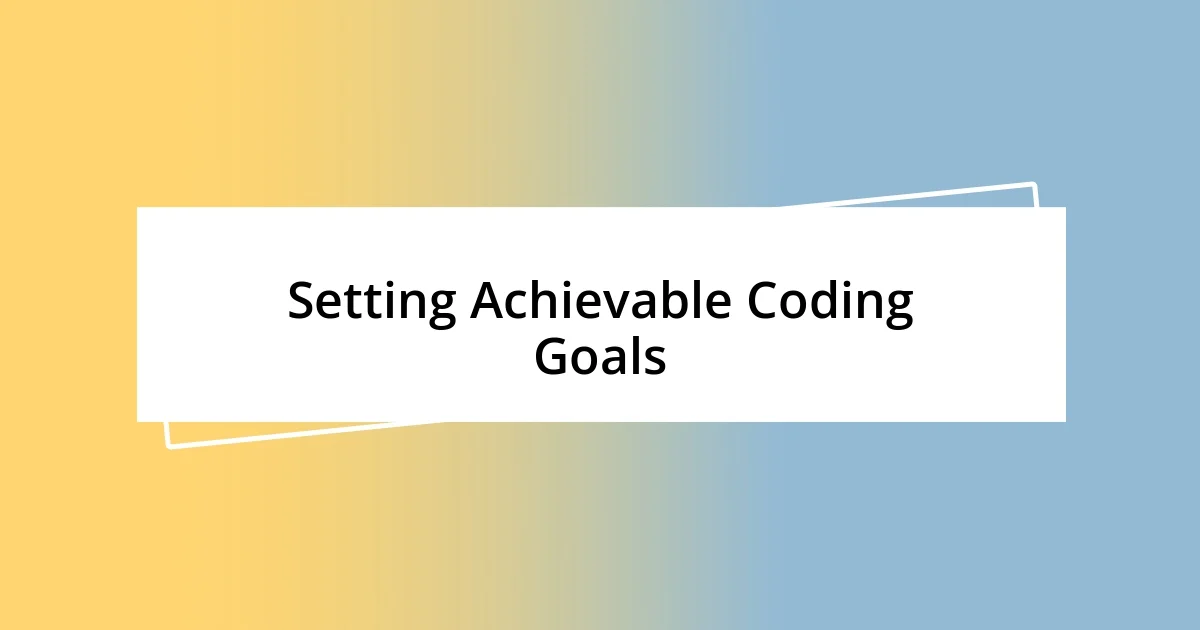
Setting Achievable Coding Goals
Setting achievable coding goals is crucial for maintaining momentum in your coding journey. From my experience, breaking down a large project into smaller, manageable tasks not only makes the work feel less intimidating but also allows for more frequent celebrations. For instance, when I set a goal to learn a new programming language, I might start with the basics—like understanding syntax or writing simple functions. Each completed lesson feels like a victory, and my confidence grows with every checkmark on my to-do list.
Here’s how I typically set achievable coding goals:
- Define clear objectives: Instead of saying “I want to learn Python,” I specify, “I will complete a Python course module this week.”
- Break it down: I divide tasks into smaller segments, such as “write one function” or “debug one section of code.”
- Set a timeline: I allocate time for each task to create a sense of urgency and keep myself accountable.
- Reflect on progress: After reaching each goal, I take a moment to reflect on my achievement, appreciating the effort it took to get there.
- Celebrate small victories: Whether it’s a small treat or a quick dance break, I find that acknowledging my progress helps sustain my enthusiasm.
I remember setting a goal to create a simple web app. The sheer scale felt overwhelming, but by focusing on one component at a time—like designing the layout or writing the backend logic—I kept myself motivated. Every time I completed a segment, I couldn’t help but feel proud. That sense of accomplishment turned what could have been a tedious process into an exciting adventure.
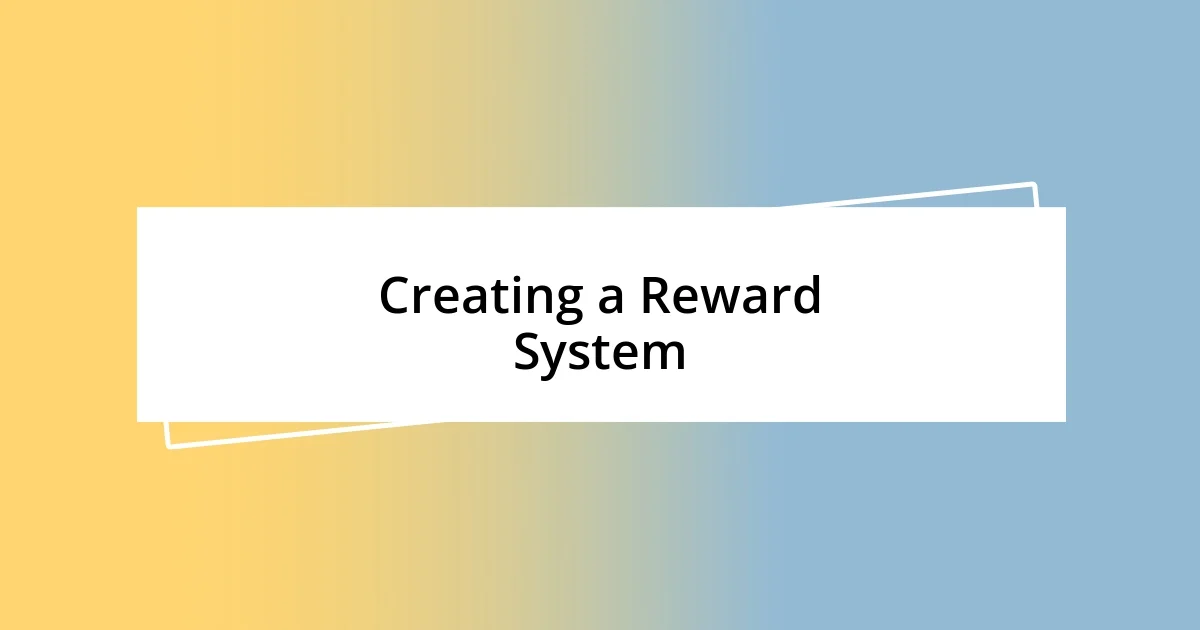
Creating a Reward System
Creating a reward system is key to celebrating small wins in coding effectively. Personally, I like to link my progress to tangible rewards. For example, after completing a challenging programming task, I allow myself a favorite snack or an episode of a show I enjoy. This combination of achievement and pleasure serves as a powerful motivator, making me eager to tackle the next challenge.
One time, after successfully implementing a tricky algorithm, I decided to treat myself to a night out with friends. This allowed me to not only celebrate my coding success but also share my achievement with others. I find that social reinforcement can enhance the joy of these victories—after all, how often do we celebrate our coding milestones with others? It turns a solitary win into a shared experience.
In addition, I also implement a points system. Every small task completed earns me points toward a bigger reward, like a new gadget or a coding course I want to take. This structure keeps me focused and fuels my ambition. Have you thought about how a reward system could change your approach to coding? It certainly adds a fun layer to learning, transforming the grind into something more engaging and dynamic.
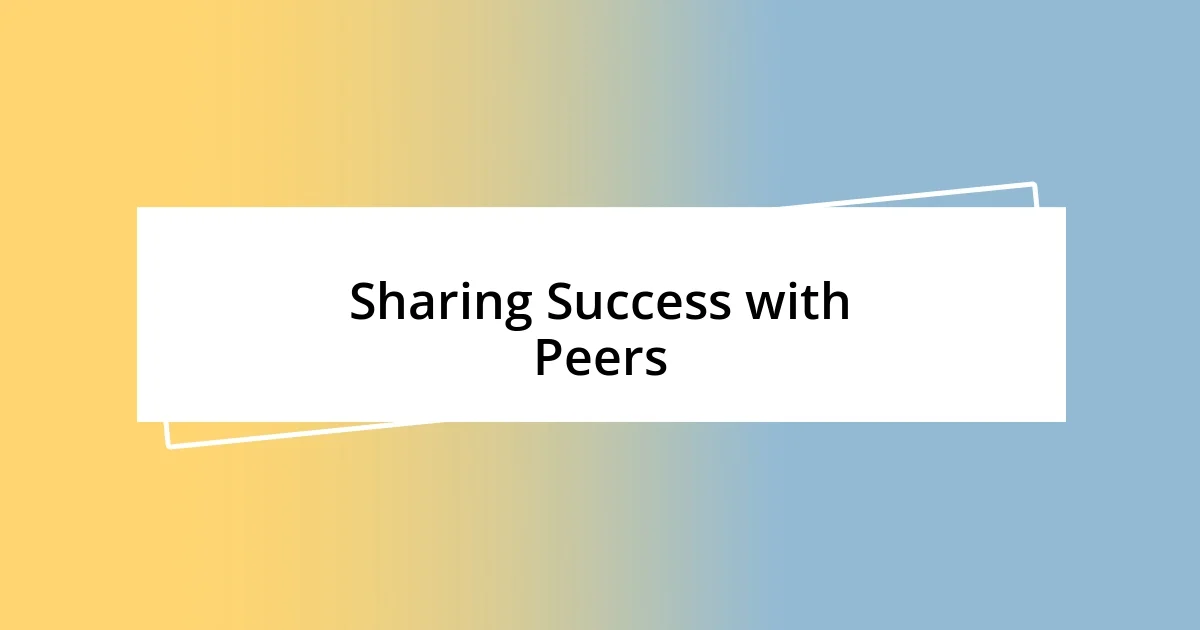
Sharing Success with Peers
When I accomplish a coding task, I love to share that triumph with my peers. It’s not just about celebrating my success; it’s about building a sense of community. Each time I message a friend or post on our group chat about finishing a tricky feature, I feel a connection growing, reminding me that we’re all in this journey together. Have you ever noticed how celebrating together enhances the joy?
I vividly recall a time when I finally debugged a stubborn piece of code that had been frustrating me for days. The moment I resolved it, I took to our coding community channel. The congratulatory messages from my peers were like a warm embrace, reinforcing my achievement and motivating me to dive into the next challenge. It’s remarkable how shared excitement can amplify individual success, creating a positive feedback loop that drives us forward.
Moreover, I find that sharing these small wins often leads to valuable feedback or new ideas. For instance, after I shared my success with an innovative solution to a problem, a peer responded with suggestions that enhanced my approach even further. I encourage you to take a moment to celebrate with others—turn your solo wins into collective joy. Isn’t it rewarding to cultivate an environment where achievements spark inspiration for everyone involved?
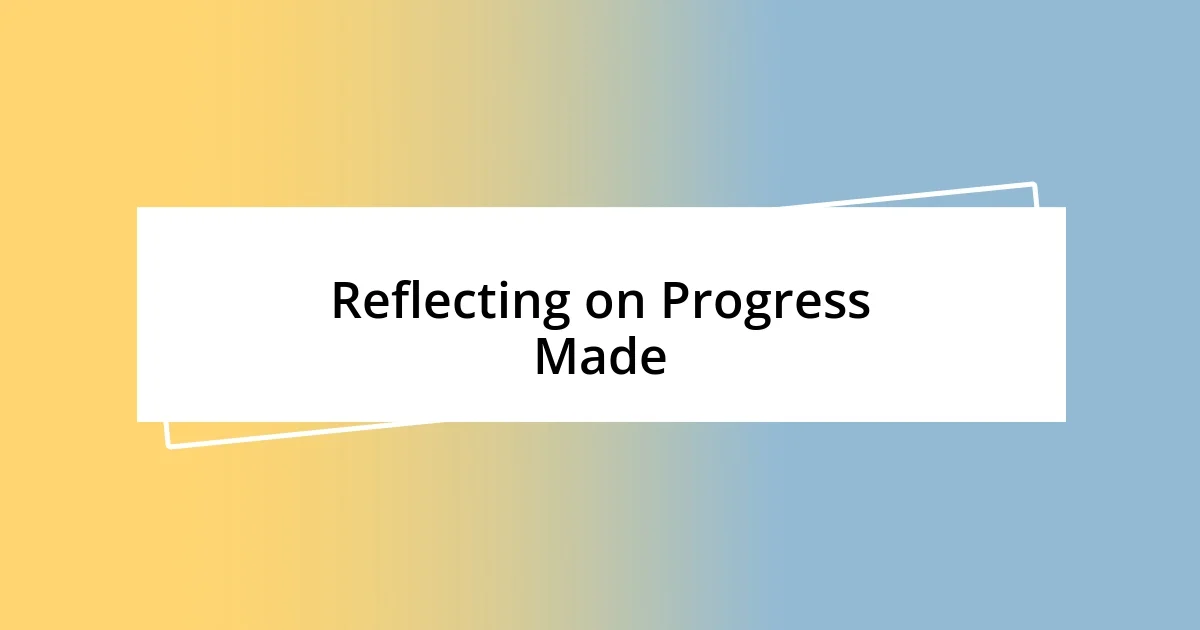
Reflecting on Progress Made
Reflecting on progress made is an essential step in my coding journey. There are moments when I look back at the growth I’ve experienced—from stumbling over basic concepts to confidently creating complete applications. I often jot down what I’ve learned in a journal; this practice not only crystallizes my knowledge but also gives me a clear view of how far I’ve come. Have you ever taken a moment to realize how much you’ve overcome?
I remember one particular instance when I revisited an old project I had completed months prior. As I navigated through the code, I was surprised to see how my understanding had deepened since then. It felt almost surreal, like rediscovering a part of myself that had evolved. This reflection not only boosted my confidence but also ignited a desire to rework and improve that project, showcasing my new skills. Isn’t it fascinating how a simple look back can reinvigorate our passion?
Sometimes, I create a visual timeline of my achievements, marking significant milestones along the way. Each point on the timeline represents a challenge conquered or a new skill mastered, serving as a tangible reminder of my efforts. When I see that progression, it all feels worthwhile. Have you ever tried mapping out your growth? I’ve found it to be a motivating exercise that reinforces my commitment to continuous learning and improvement.
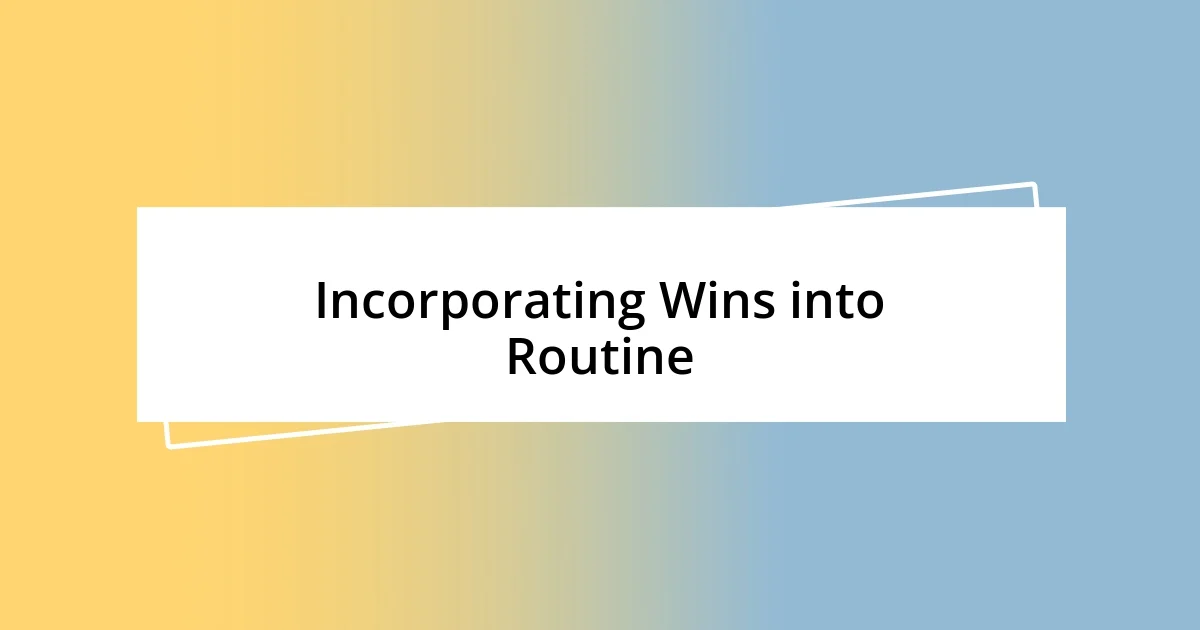
Incorporating Wins into Routine
Incorporating small wins into my daily routine has truly transformed my approach to coding. After tackling a challenging piece of code, I allow myself a brief moment to celebrate—whether it’s stepping away for a quick walk or enjoying a favorite snack. This tiny ritual serves as a mental reset, reminding me that progress is just as important as the end goal. Have you ever noticed how little breaks can recharge your motivation?
There’s a point in my day where I dedicate a few minutes to reflect on what I accomplished. I find that writing down my small wins, even something as simple as fixing a pesky bug, acts as an affirmation of my efforts. It’s like patting myself on the back and saying, “You did great today!” This simple practice not only boosts my mood but also allows me to track my progress over time, reinforcing my learning journey. How often do we let our small victories slip by unnoticed?
Integrating rewards is another strategy I use to celebrate these moments. For example, after completing a coding task, I reward myself with a short episode of a favorite show. It’s a small but significant way to acknowledge my hard work and keep the excitement alive. By making these wins part of my routine, I cultivate a positive loop of motivation that drives me forward. Have you thought about how small rewards can keep your enthusiasm high?
